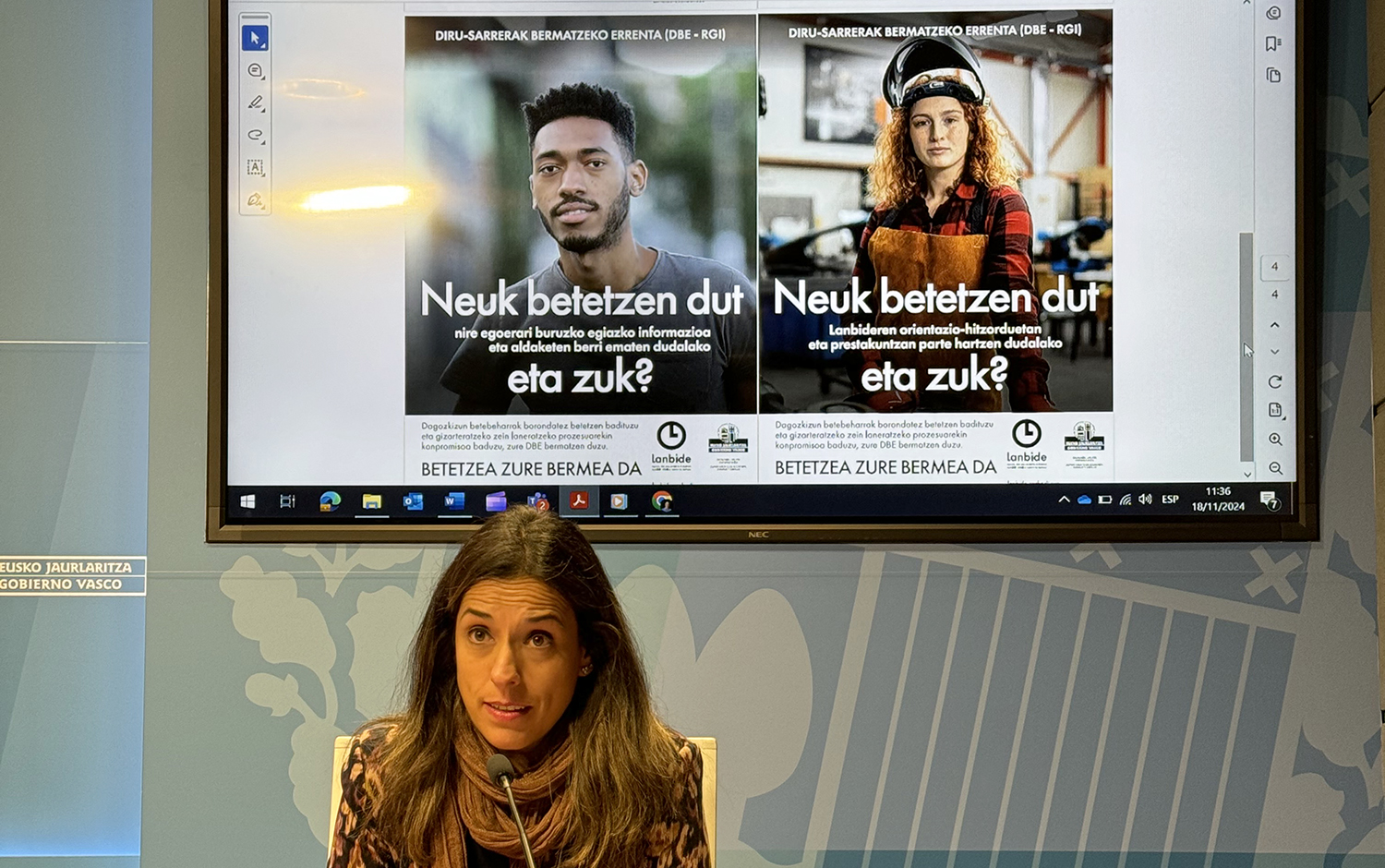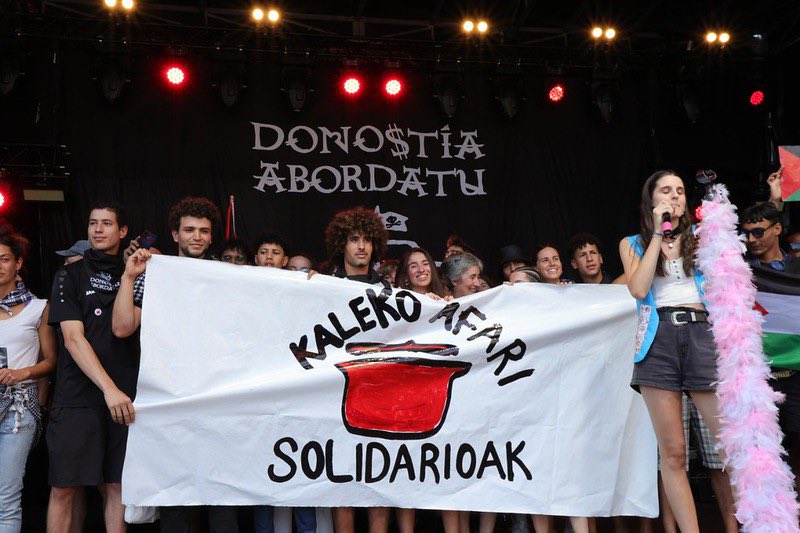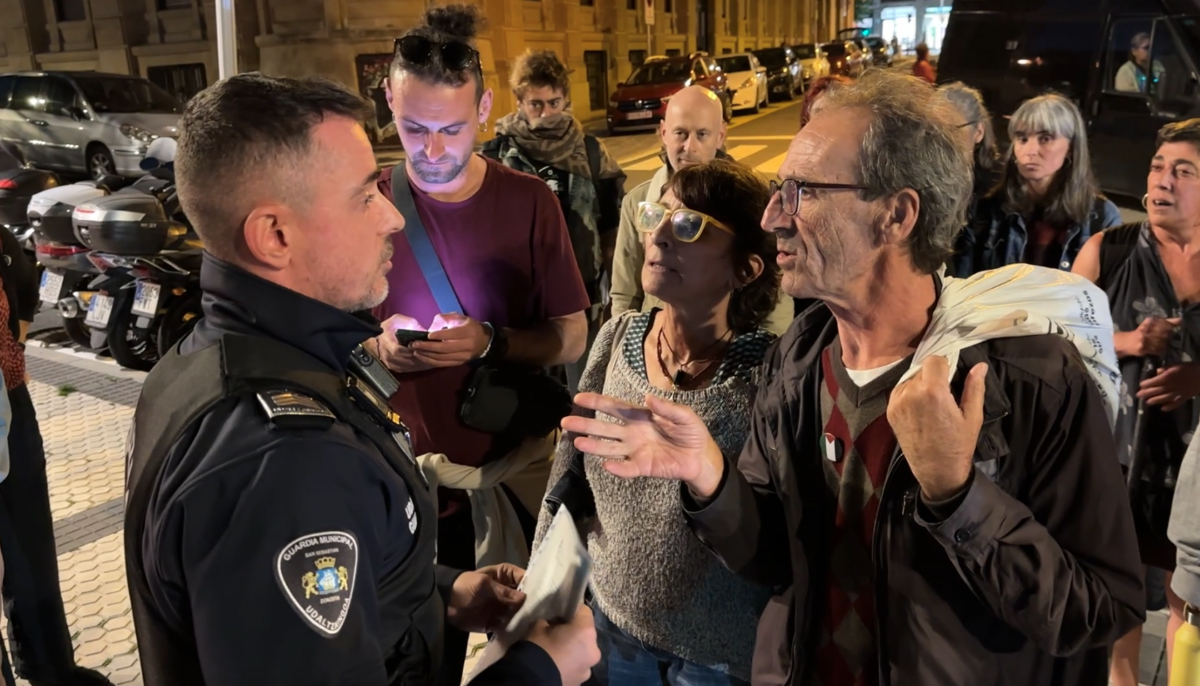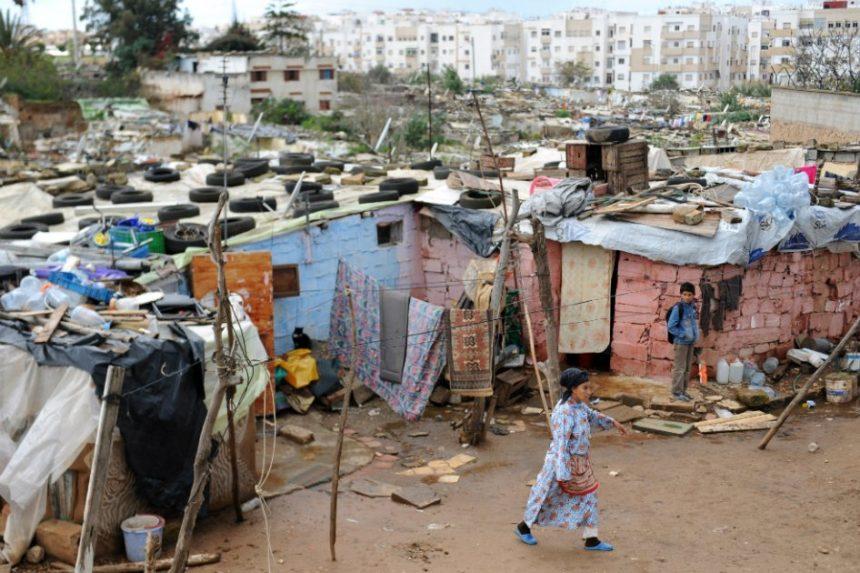Need for preventive measures
- Javier Maroto has called into question the functioning of the Income Guarantee Income (IGR) and has made it worthwhile that fraud should serve to argue and condemn immigrants. We have analysed the characteristics of this important instrument of social protection, as well as the lights and shadows of the other great foot of social policy: social services.

The quality of social policies, coverage and speed of services in general is good in the CAV, similar in Iparralde and worse in Navarra, but clearly better than in Spain. Compared to European countries with a similar level of development, our situation is improving. Income Guarantee Income (IGR) is the main social protection instrument of the Basque Government: the economic benefit to people in need. To the extent that the IGR is a subjective right, the money to guarantee income depends on the demand – of the people who need it – is not a limited item. The data indicate that people are being an effective tool to get out of poverty and alleviate the poverty of other people and, above all, to help those who are on the poverty line, according to Social Work Professor Félix Arrieta: “For example, it helps people with very low (usually widowed) pensions to supplement their pension, and it also supports people who remain unemployed for a long time.” After all, the IGR acts as a buffer against the gaps that other policies leave: banal policies on housing, low unemployment benefits, problems of regulation of the immigrant population that cannot work… This is what Joseba Zalakain, an expert in social sciences, says. Moreover, it somehow covers the Social Security gap, according to Felix Arrieta: “The Gernika Statute provides for the possibility of having one’s own Social Security, which would allow us to manage the pension system and unemployment or reorganize the work environment in another way, I am convinced that we are prepared to assume the Social Security financially, but the Spanish Government has always denied us that possibility, arguing the single fund and the principle of solidarity between Spaniards. In the meantime, the IGR partly fulfils this function by balancing unemployment benefits or pensions.”
In the French State, including the French Basque Country, the minimum income guarantee scheme is similar: The Revenu de Solidarité Active (Rent of Active Solidarity) is a kind of RGI in terms of, investment and coverage. In contrast, in Navarra, sociologist Miguel Laparra has denounced that, although in the first years of the crisis the basic income system had an adequate level of coverage, the transformation of this basic income in 2012 into Social Integration Income (IGR) represented a significant setback: deadlines were set and conditions were tightened (for example, in relation to the standard), so that not all people receive it. And those who receive it also receive a significantly lower amount than the CAV.
They also have the Supplementary Housing Benefit and the Social Emergency Assistance at the CAPV – in Navarra they only have the Emergency Assistance in coverage and in a much smaller number. The Complementary Housing Benefit aims to guarantee housing and as a complement to the RGI, the Social Emergency Aid is paid by the Basque Government and managed by the municipalities, but it is not a subjective right, so a concrete amount of money is allocated to social emergencies, although the demand may be higher.
Income Guarantee vs. Universal Basic Income
The abovementioned income should not be confused with the universal basic income, i.e. the right to a minimum income as a citizen. Arrieta stressed that the CAV and Navarre have the tools to discuss universal income, since the current minimum income is not universal, is linked to the conditions of registration or employment, “but should the minimum income be linked to the ability to have a job? This clashes with the universality of income; universal basic income would have other concepts, quantities and consequences”. It is precisely since 2012 that the municipal employment service rather than the municipal social services is the Lanbide employment service in charge of managing the IGR, a sign that the perception of income is closely linked to paid employment. Lanbide's assumption of the IGR has meant, on the one hand, that the collapse of the service, due to the great work, and, on the other hand, that the attention is limited to economic management: “The monitoring and support provided by the social services of the municipalities has been lost, because in Lanbide there are no people with a social work profile who can deal with the cases that come from the point of view and from the point of view of social integration,” explains Arrieta.
It is not the only criticism of income. Zalakain pointed out that, despite the IGR, many people do not go out of poverty, because they do not meet all the needs, or because not all the people who need it receive the income. It is necessary to maintain the IGR, but the expert considers it essential to rethink a model that goes beyond a relief system. “We must look more at poverty-generating systems and not at measures that aim to alleviate poverty after it has created it. In other words, we should not only focus on redistributive policies, but also on pre-distributive policies: education, the labour market and housing adjustment is an urgent need to reduce poverty. The key is prevention, because, despite having many palliative measures, you have a weak or exclusionary labour market (unbalanced in wages, precarious, based on low-quality jobs…) you are pathetic. And the same is true if you have an educational model that leaves people behind and does not guarantee the same opportunities to the sons and daughters of any family, or if the school does not provide adequate training that suits the current situation. Otherwise, what has happened to Spain or Greece will happen, since its only possibilities are construction, tourism and low-value sectors, and there is almost a must for poverty”.
In the opinion of Arrieta, the most difficult thing is to find the balance: “Food banks, for example, do a very good job, but that cannot be the model, the institutions have to be above the care model and as citizens we have to look for something else, we cannot leave in the hands of the institutions all the development of solidarity”. Miguel Laparra added that the model they currently have in Navarra is obsessed with the control of citizenship, to check that those who receive the money strictly comply with the conditions. “The issue is that the actions are aimed at this and there is little effort to offer a process of social incorporation in addition to the economic benefit, so that this person can get work, update the training, improve the living conditions…”.
In the event of not rethinking the model, Zalakain has warned that there is a risk of chronifying imbalances: for some very good jobs, and for others of very poor quality, 20-40% of the population cannot get out of this precariousness over a lifetime.
Social services, the other main leg… and uneven
Social services are another pillar of social policies. These services respond especially to the needs of four groups: minors in situations of disprotection (there are special programmes for families in situations of conflict, also for adolescents with drugs or other addictions, and ultimately specialised apartments and residences); dependent elderly people (there are homes, day centres, home services…); disabled people (there are many specialised residences, employment centres like Gureak…); and people suffering from social exclusion. “The latter is still an indeterminate sack, what is social exclusion? It is a large sack, largely unknown, so it does not have a defined network – Arrieta explains – as that of three other groups to deal with the problem. That sack is the main challenge of the moment, because when you say that you have to deal with poverty, you're talking about it. There are centres, shelters… but often in the hands of non-profit institutions (Caritas, Emmaus, Red Cross…), because they have gone ahead of the public administration, because it has been the social services that have never imported anyone.”
Arrieta sees in the social services of the CAPV two main problems: the unbalanced management and the lack of debate of the model. The Foreign Ministers are responsible for social services, so the Gipuzkoans, Biscayan and Alaveses have different options to access social services. He deduced this in his thesis on services for the elderly, where the three territories have a different management model and rates, both in day centers, nursing homes, and in dependency aids. “Just as Osakidetza responds to health needs from a single system, we should have a single system of social services, in the hands of a single organization. Detractors say we would lose proximity, but does the citizen feel the outpatient clinic away from the neighborhood? We need to give social services the importance they have and as a people we need a joint strategy that offers equal opportunities to all citizens.” We will have to see what the future means, because the Basque Government has recently approved the Department of Social Services, on a road towards the homogenization of the systems and services of the three territories.
As for the model, Arrieta says that it is inertia that marks, because the parties have not reflected. “Deputies do not have models in the field of social services, there is continuity to what is there. We would have to discuss which protection system we want. For example, how are we going to better serve the elderly? Should we ensure that all people have a place in the residences? Or the priority is to put the means to stay home despite having a dementia or a disease?” He criticised that there is no comprehensive strategy, that it is the municipalities that finally think about all these things, and that it is precisely the municipalities that have the least budget and the least resources.
Hot potato on city councils
Municipalities have many services related to care, such as primary care for people in situations of exclusion, and few resources, among them because, according to Joseba Zalakain, municipal taxation is very low, that is, they can charge more taxes. The fact is that, according to Felix Arrieta, municipalities do not have clear competences, as there is no municipal law in the CAPV, which means that there is no clear funding and that municipalities often assume everything (culture, transport, social services…).
Donostia/San Sebastián is an example of the efforts made by many peoples in social policies: it has multiplied by four the aid to deal with cases of social exclusion, has completed the government's line to deal with all the requests for Social Emergency Aid (41% of the total is provided by the city council) or through the insertion aid responds to very different needs of the citizens: food, housing, training, legal assistance,
.jpg)
Diru-Sarrerak Bermatzeko Errenta ahotan sarri hartu du Javier Maroto Gasteizko alkateak azken boladan: prestazio sozialetan egiten den iruzurra saihestea omen du helburu eta DBE jaso ahal izateko baldintzak gogortu nahi ditu horretarako. Baina zer dio alkateak eta zer diote datuek? “Etorkinak gizarte laguntzetatik bizitzera datoz”, esan du Marotok, baina 2013an baino kanpotar gutxiago zenbatu zituzten 2014an EAEn eta Ikuspegi Immigrazioaren Euskal Behatokiaren arabera, krisiak eraginda erkidegotik alde egiten dutenen %85 kanpotarrak dira (eraikuntza, ostalaritza, nekazaritza… gehiago dagoen lurraldeetara mugitzen dira, lan bila). “Gizarte laguntzetan egiten den iruzurra eskandalagarria da”, dio Marotok, baina Lanbideren ikerketen arabera, DBE laguntzetan egon den irregulartasuna %1ekoa da eta batik bat akats administratiboen errua da; benetako iruzurra gizarte laguntzen %0,3 baino ez da (3,8 milioi euro inguru). Konparaziorako, iruzur fiskalak 2.000 milioi euroko zuloa uzten du urtero EAEn (13.500 milioikoa ikuspegi ezkorrenen arabera). “Aljeriar eta magrebtar gehienak gizarte laguntzetatik bizi dira Gasteizen”, Marotoren esanetan, baina Lanbideren datuek argi uzten dute DBE kobratzen dutenen gehiengo handia “bertakoa” dela (%60,7 euskal herritarrak edo Espainiako Estatukoak dira, magrebtarrak berriz %9,3). Eta bi ohar: batetik, etorkinek (ere) DBE behar izatea ulergarria da, krisiak askoz gogorrago kolpatu dituen profiletako bat direlako eta maiz ez dutelako familia sarerik, kontrakoa –laguntzarik ez jasotzea– susmagarria eta kezkatzekoa litzateke; bestetik, azterketa guztien arabera etorkinek jasotzen dutena baino ekarpen handiagoa egiten diote Gizarte Segurantzari.
Zilegi da DBEn egon daitekeen iruzurra kontrolatzeko baldintzetan aldaketak proposatzea, baina laguntzak eskuratzeko sarbidea zailtzeak –eta hori da Marotok eskatu duena– ez du zerikusirik iruzurrari aurre egitearekin, are gutxiago prestazioa kolektibo jakin bati ukatu nahi zaionean. Hauteskunde bezperetan, propaganda politiko demagogikoaren kiratsa dario aferari, eta halako mezuak etengabe zabaltzea arriskutsua da, ez soilik tentsioa, zatiketa eta etorkinen estigmatizazioa areagotzen eta elkarbizitza kaltetzen dutelako, baita babes eta ongizate sistema bera kolokan jartzea ekar lezakeelako ere.
Ayudas+Justas?
Testuinguru hori guztia aintzat hartu ezean, zeinek ez luke sinatuko Ayudas+Justas (Laguntza bidezkoagoak) lelotzat daraman ekimen bat? Marotok eta PPk babestu eta sustatu duten ekimen herritarrak 30.000 sinadura bildu nahi ditu, DBE kobratzeko baldintzen araudia zorroztu dadin. Giro mikaztu horretan, alkatearen politika baztertzailea salatu dute Gasteizko 78 eragilek, Gora Gasteiz plataforma jaio da kultur, arraza, sexu joera… aniztasunaren alde, eta hiriburuko elizbarrutiko 68 apaiz agertu dira Ayudas+Justas ekimenaren aurka, diskurtso tranpatiarekin diskriminazioa bultzatzen duelakoan.
2012tik 2014ra, pobreziak %50 egin du gora EAEn; biztanleen %16,8 bazterketa egoeran dago (360.580 pertsona inguru) eta %4,9 pobrezia larria jasateko arriskuan (105.000 lagun), zifra historikoa EAEn. Nafarroan, %4-5ari eragiten dio pobrezia larriak (32.000 biztanle) eta “bazterketa soziala pairatzen dutenen egoera kronifikatzeko arrisku handia dago Nafarroan, inoiz ez bezalakoa”, Miguel Laparra soziologoaren hitzetan.
Gasteizko Errotako (Koroatze) auzoan izan diren manifestazio "anonimoek" kolokan jarri dute auzokoen arteko elkarbizitza. Azalera atera dituzte ere hauetan parte hartu duten partidu politiko batzuen eta beste kide batzuen izaera faxista eta arrazista.
In this frenetic and vertiginous world in which we live, the social changes that take place little by little seem to us to be sometimes imperceptible, irrelevant or insignificant. That is not the case, however, and we have to be aware of it in order to act wisely. An example of... [+]











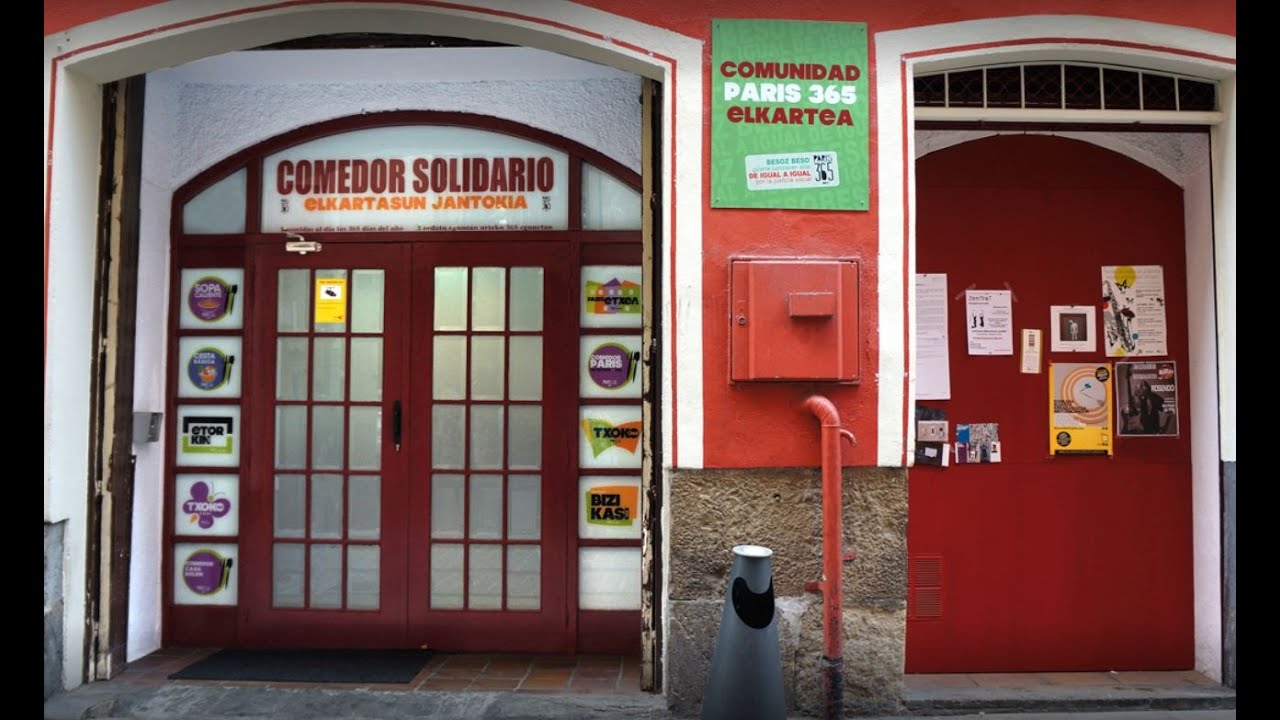



.jpeg)
